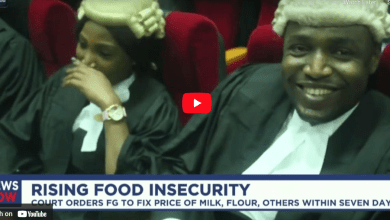Trump-Putin Call Looms as Push for Ukraine Ceasefire Intensifies

In a high-stakes diplomatic maneuver, former U.S. President Donald Trump is scheduled to speak with Russian President Vladimir Putin on Monday, as part of a renewed push to broker a ceasefire in the grinding war ignited by Moscow’s 2022 invasion of Ukraine.
Trump, who has long insisted he could end the conflict “within 24 hours” of returning to the Oval Office, appears intent on positioning himself as a peace broker—even as formal progress remains elusive.
Kremlin spokesperson Dmitry Peskov called the upcoming conversation “important,” stating that Russia “highly values” Washington’s efforts to end the hostilities. “It is preferable to achieve our goals through political and diplomatic means,” he told state media.
The call follows a rare and tense round of face-to-face negotiations between Russian and Ukrainian delegates in Istanbul last week—their first in nearly three years. While the talks resulted in an agreement to exchange 1,000 prisoners on each side and floated potential frameworks for a truce, no binding commitments were made.
Kyiv accused Moscow of fielding a token delegation composed of junior officials, while Russian representatives criticized Ukraine’s stance as uncompromising.
Shortly after the Istanbul summit, Trump announced he would speak not only with Putin, but also with Ukrainian President Volodymyr Zelensky and NATO officials. “I hope a ceasefire will take place, and this very violent war will end,” he said, describing the conflict as a “BLOODBATH” that must be stopped.
Despite acknowledging Ukraine’s suffering, Trump has largely reserved his criticism for Kyiv—often portraying its leadership as ungrateful—while offering measured language toward Putin. He maintains that meaningful progress will not be made until he meets the Russian leader face-to-face.
European leaders, meanwhile, have stepped up pressure on Moscow. In a joint call with Trump on Sunday, the heads of Britain, France, Germany, and Italy demanded an unconditional ceasefire and warned of further sanctions if the Kremlin fails to engage seriously in peace efforts. “Putin must agree to a ceasefire and peace talks,” German Chancellor Friedrich Merz posted on X, formerly Twitter.
In Rome, Zelensky met with U.S. Vice President JD Vance following Pope Leo’s inaugural mass at the Vatican. According to a senior Ukrainian official, they discussed upcoming sanctions and preparations for Monday’s Trump-Putin conversation. It was the pair’s first meeting since their public clash in February, when Vance accused Zelensky of being “disrespectful” to Trump during a heated exchange in the Oval Office.
Trump, according to reports, told the Ukrainian president he had no “cards” to play in negotiations with Russia.
On the ground, the war rages on. Russian forces claimed to have captured two villages in Ukraine’s eastern Sumy and Donetsk regions over the weekend. Ukraine’s air force reported intercepting 76 of the 112 drones launched by Russia in a major overnight assault.
In an interview broadcast Sunday on Russian state television, Putin doubled down on Moscow’s rationale for the invasion, insisting the goal remains to “eliminate the causes that triggered this crisis, create the conditions for a lasting peace, and guarantee Russia’s security.”
The Kremlin frequently points to NATO expansion, Ukraine’s westward shift, and the protection of Russian-speaking populations as pretexts for its aggression.
Kyiv and its Western allies reject these narratives, branding Russia’s invasion as a modern-day land grab dressed in Cold War rhetoric.





